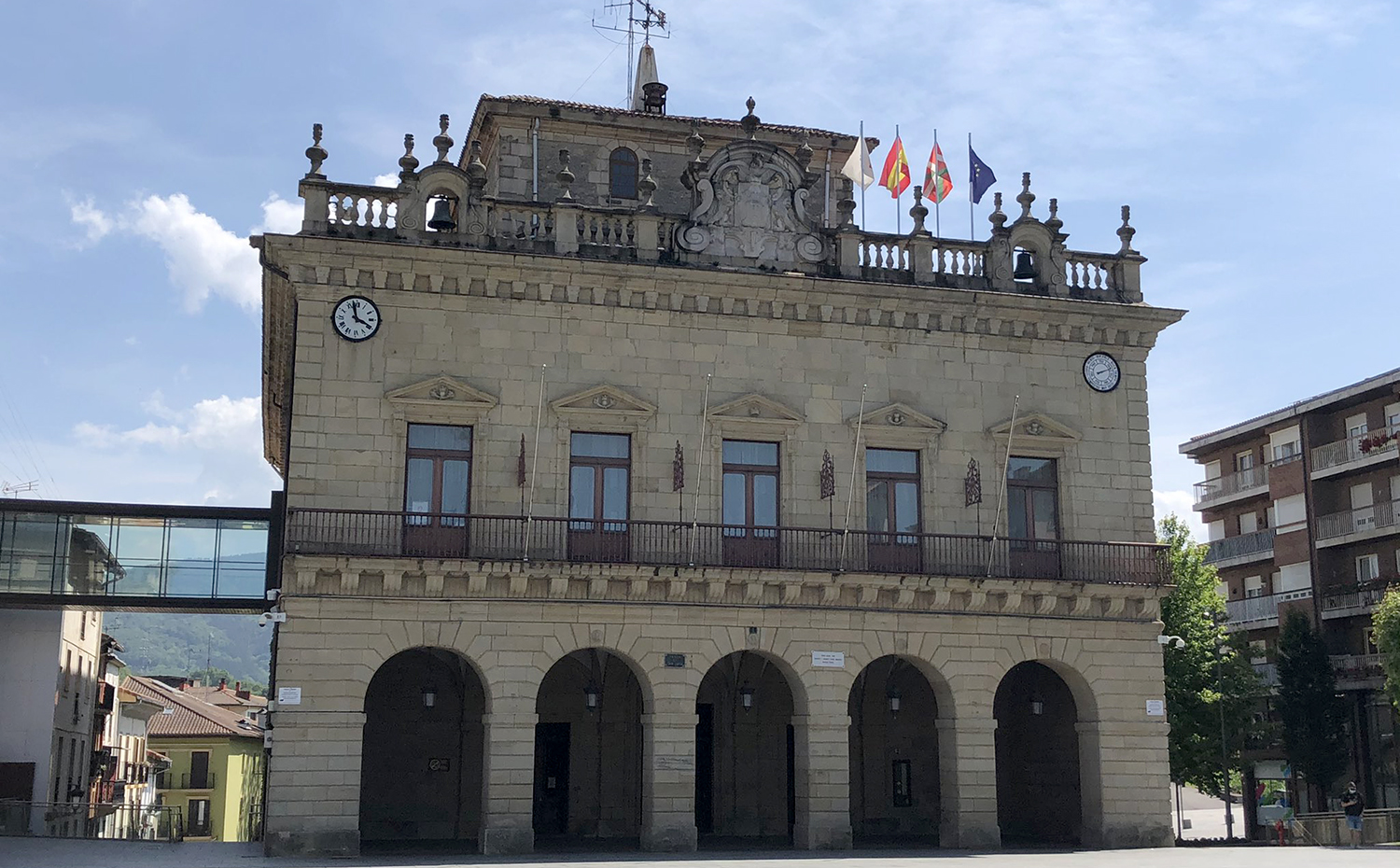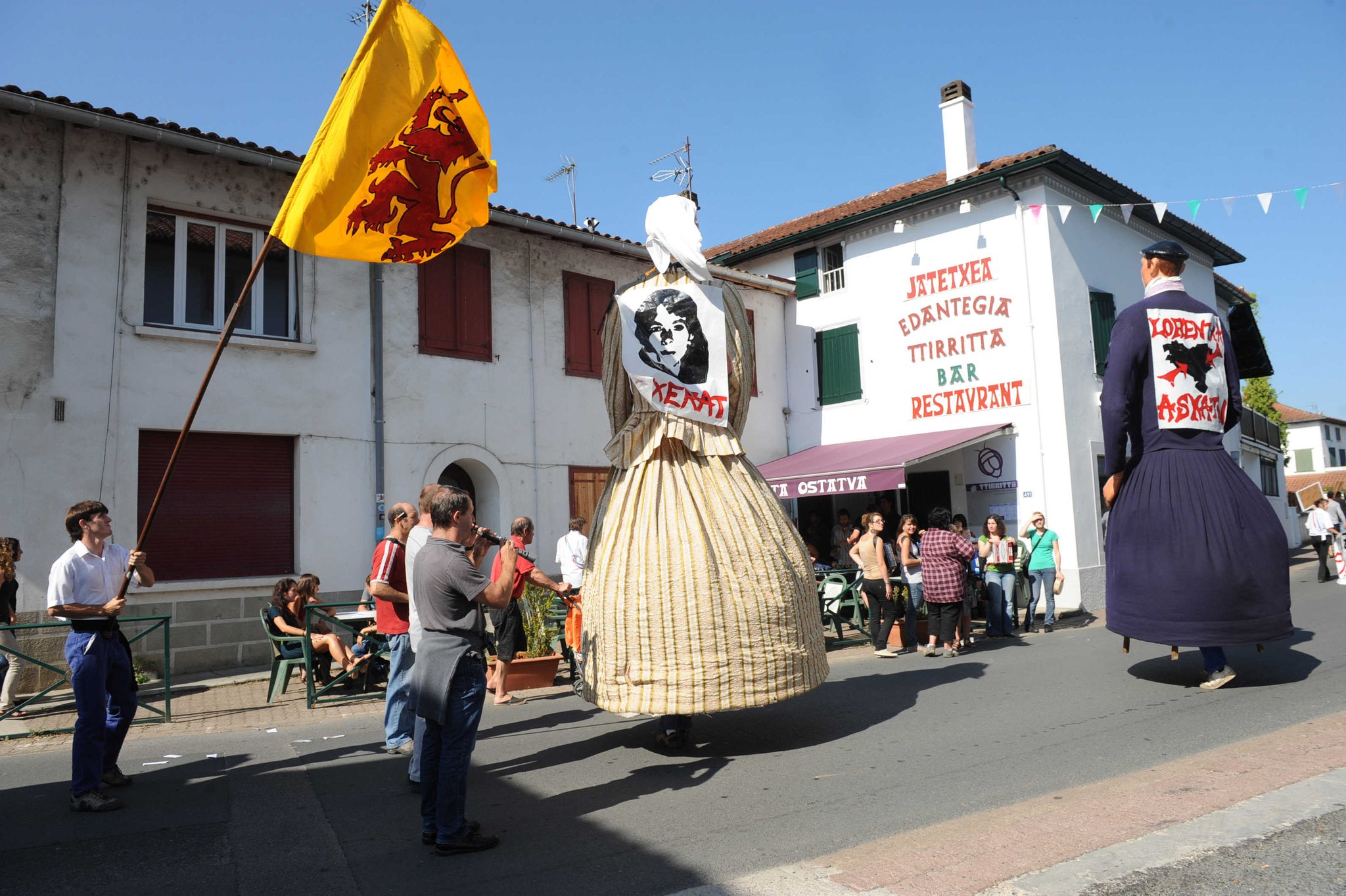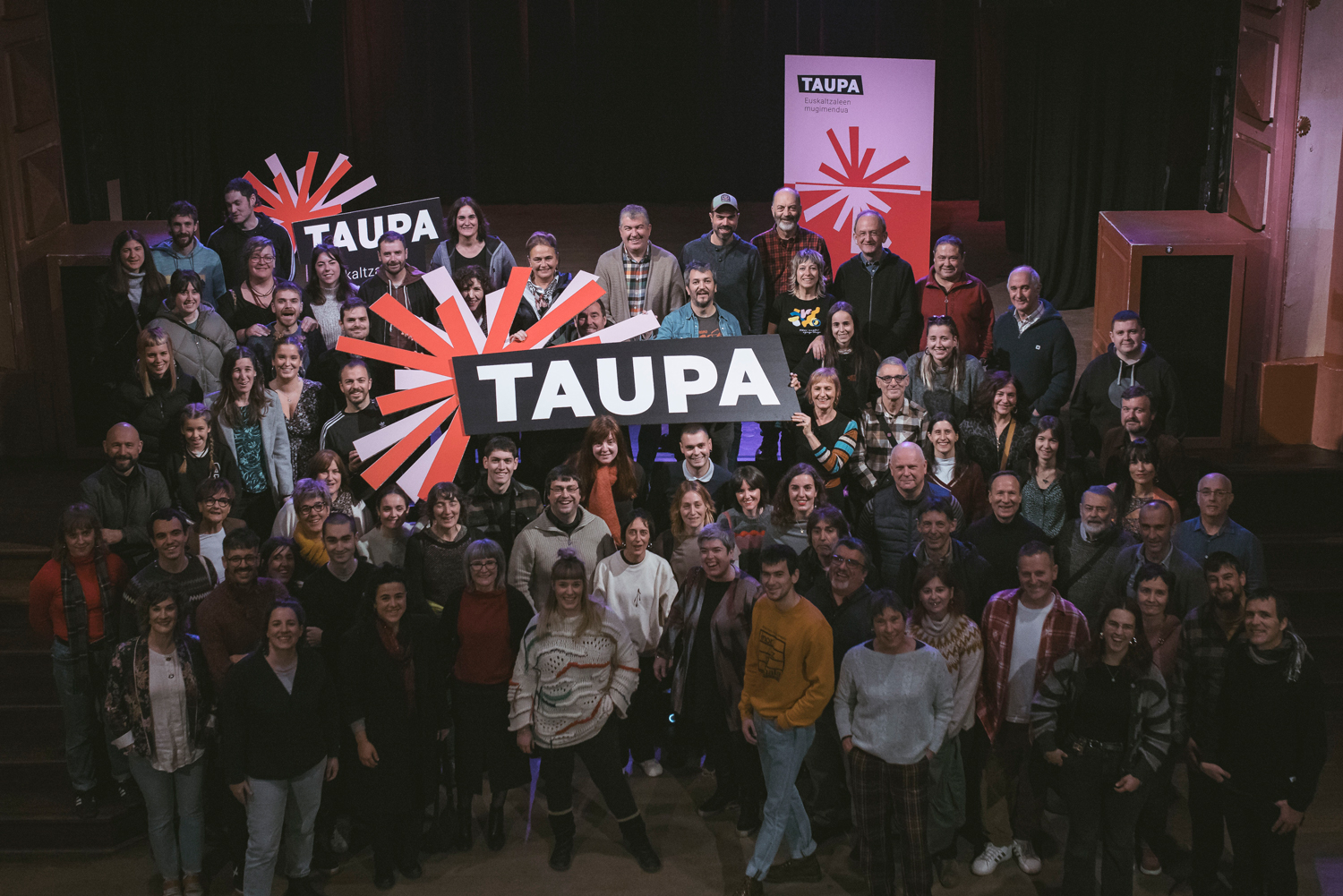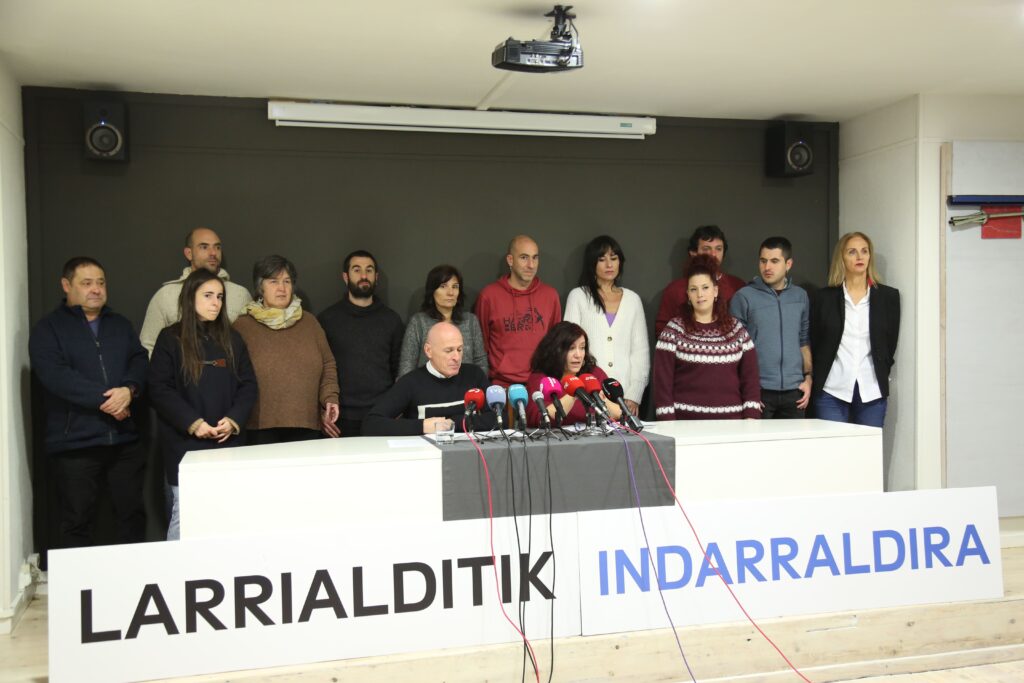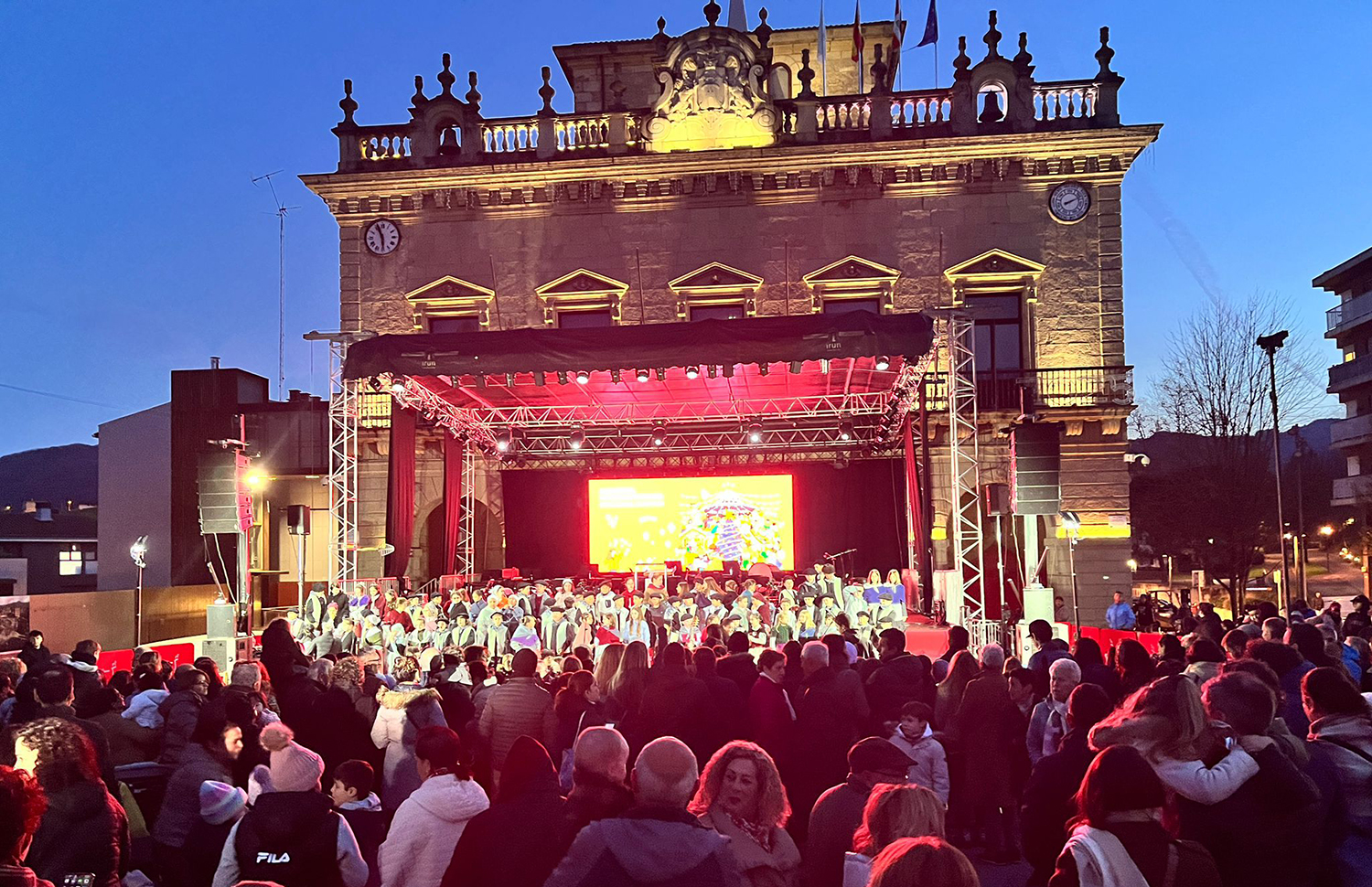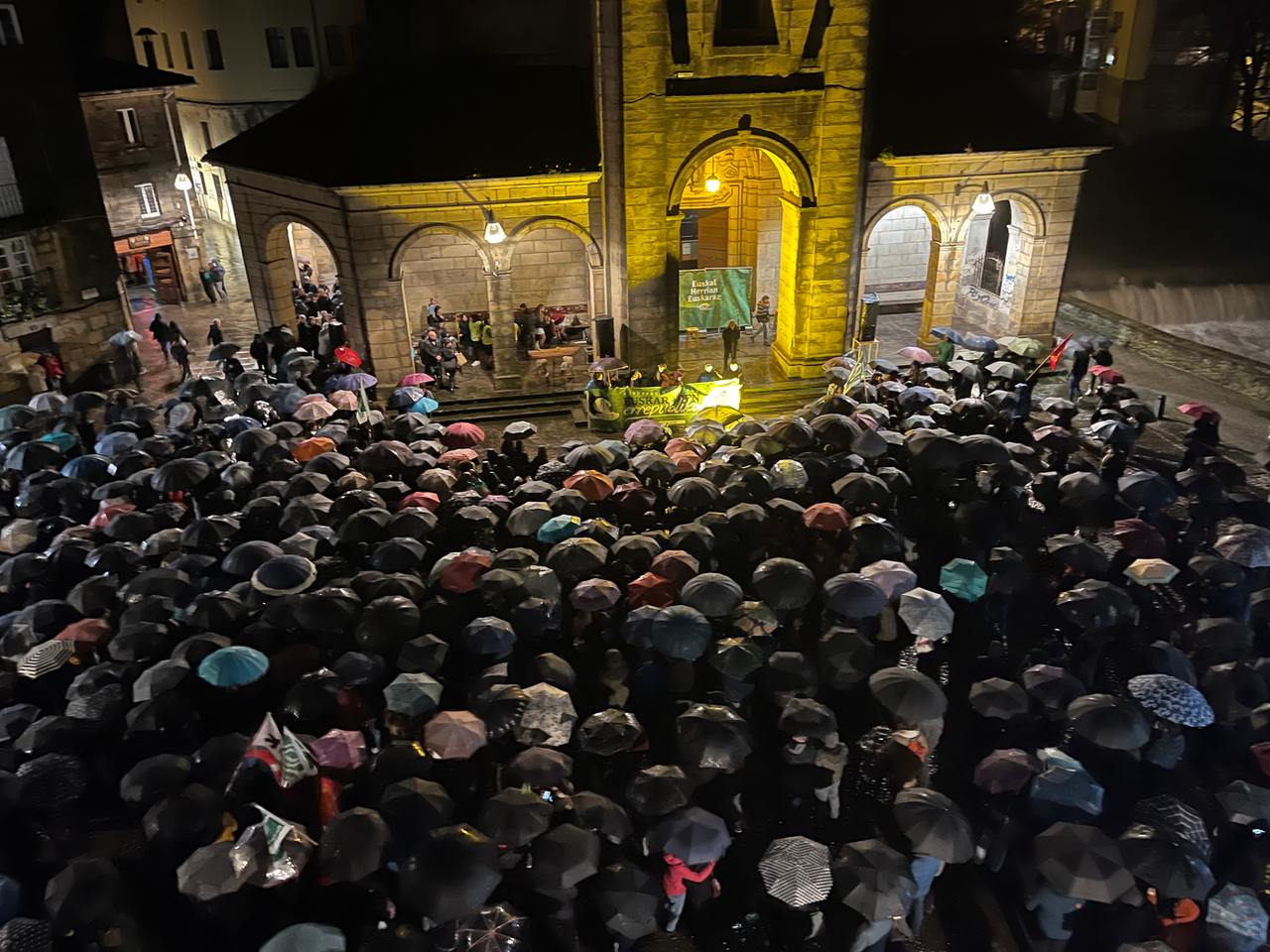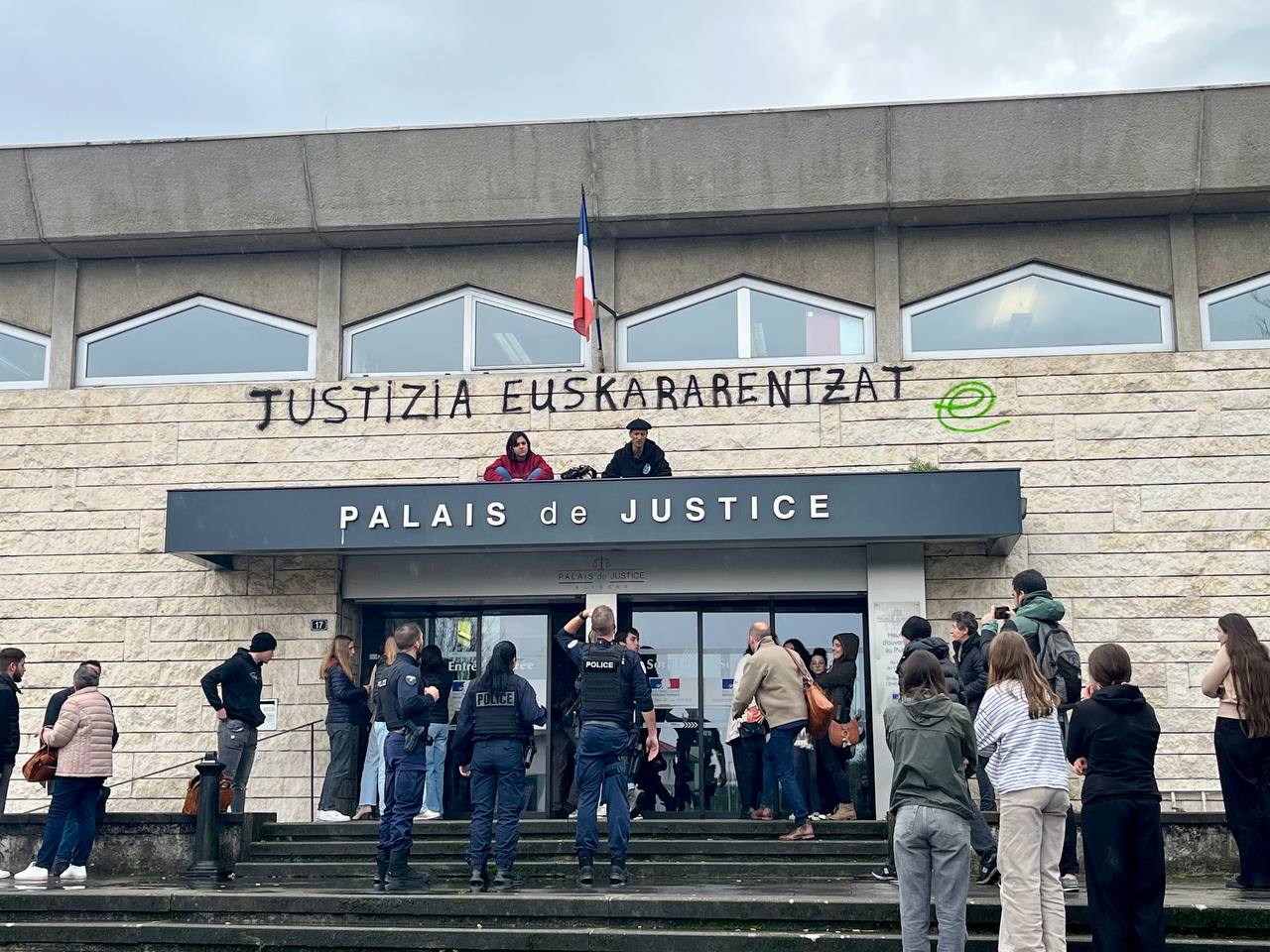In Iparralde, hundreds of workers for their sake!
- At the beginning of the Euskaraldia campaign, we wanted to know the number of jobs created by the Basque area for years. These positions have to be classified because there are some direct positions that need to know Euskera and other positions that the knowledge of Euskera gives an extra punch to get a job. If the numbers shown here are contrasted, some sectors are scarce (assistants of the elderly, agricultural departments, trade unions...), as it is difficult to know exactly.

Following the reflection of Euskal Irratiak, Herria, Ipar Hitza and Kanaldude on the four Basque media, this month the issue has been worked together: "Euskalgintza giltzak, euskalgintzan giltzak." Euskal Irrati Telebista proposes a balance of the jobs created by the Basque cultural movement, the radios of Euskal Herria have propitiated a colloquium between the two partners who have just learned Euskera, Ipar Euskal Herriko Hitza has investigated what and Kanaldude has been to know the new company Gogaide.
At the beginning of the Euskaraldia campaign, we wanted to know the number of jobs created by the Basque area for years. These positions have to be classified because there are some direct positions that need to know Euskera and other positions that the knowledge of Euskera gives an extra punch to get a job. If the numbers shown here are contrasted, some sectors are scarce (assistants of the elderly, agricultural departments, trade unions...), as it is difficult to know exactly.
Direct jobs in the construction sector
Seaska is the first to appear, since since its creation in Arrangoitze in 1969 the immersion school has been progressively developed, currently there are 420 workers working in different departments: The school and lyceum host 200 exhibitors. But also around a school other workers are needed, in Seaska there are 150 workers who work as assistants in the first year, as well as 20 educators (Integration Commission) and 50 workers who are their duties: secretariat, accounting, surveillance, cleaning, advice and training.
Euskal Haziak is a mockery association created in 1968 by the Christian school in Kanbo. These burasses also opened bilingual classes, have been increasing year after year and now there are two types of schools, one in the immersion system and one in the bilingual. Today, there are 145 applicants, 85 first and 60 second.
Public schools: they are organized into two groups, Biga Bai and Ikas Bi, both are burdensome associations, although it has been difficult to get the numbers, the only thing we have known is that there are 152 students in the first year. Although it cannot be given an exact number, it can be said that there are more than 700 jobs in the Basque training section.
Auxiliary structures for attraction
The Centre for Studies, in the service of teaching in Basque, is responsible for producing books in Basque for teaching, or for translating those in French into Basque. This structure has 8 workers, 5 directly paid by the association and 2 financed by the French National Education.
AEK, an association specializing in maturation, has workers all over the North. In total, 34 workers work all year round, as well as support staff. Most of these workers provide courses and others are dedicated to the daily administrative management of the associative cooperative.
Summer Leku: Those who handle child abuse need 90 workers to bring their structure well. Not all of these jobs work full time, they are 15 people throughout the year and 75 animators under sporadic contract, especially with holiday stays. Partnerships working beyond creation have created 132 jobs.
The media also create jobs in Euskera
If in 1944 the weekly Herria was created, since then other media have appeared, such as the radios that in 1982 officially started their journey under the brand FM, in which the now known federation is Euskal Irratiak. Other print presses have also been created in Iparralde: izan Berria/ Ipar Euskal Herriko Hitza, Kazeta. Info The audiovisual sectors have also taken a place, in which Aldudarrak Bideo, known mainly for producing some documentaries and with them FR3, Euskal Herria and EITB, which also have their offices in Ipar Euskal Herria. The Basque media employs a total of 60 workers.
Staff of public bodies
The Public Institute of the Basque Language (EEP) was officially established in 2004, but steps have already been taken in the previous years to implement a language policy. The State, the Aquitaine Region, the Department and the People’s Union joined together in creating a differentiated structure in favor of the Basque Country. In this structure, 12 people work. If planted in Uztaritze
The Basque Cultural Institute, created in 1990, consists of 9 people, with the objective of developing the Basque culture and the support of the associations. In Arteta, about 20 people work on specific projects for EKE.
The Basque College voted on June 23, 2018 to make known Gascocitan and Euskera in this institution. The Basque College also has jobs that need to know the Basque directly, the best known are the Basque technicians, 11 workers and in 2019 will reach 14 (3 new jobs will be created). If it is a public institution, it cannot call a job for the person who has been taken to use the Basque Country, as the legal framework does not give the power (except the Basque technician). However, if by putting the candidacy the person speaks Basque or shows desire to learn has more charm to be received. For this reason, 43 workers from the Urola Kosta Commonwealth and 5 from the tourist office of the Urola Kosta Commonwealth are already learning Euskera. Along with this, about 80 workers from the People's Houses are also immersed in continuous training. On the other hand, 6 nurseries of the Basque School, included in the Leha table, are obliged to receive staff with Euskera.
New post
The desire to use the Basque language has also boosted the need for some translators, currently 15 are doing so. These are the ones in charge of spontaneously translating some meetings or conferences that, in addition to translating writings to the Basque Country, exist, giving each one the power to speak in their own language.
This news was published by Semanario Herria and we brought it to ARGIA thanks to the CC-by-sa license.
Gabonetako argiak pizteko ekitaldia espainolez egin izanak, Irungo euskaldunak haserretzeaz harago, Aski Da! mugimendua abiatu zuen: herriko 40 elkarteren indarrak batuta, Irungo udal gobernuarekin bildu dira orain, alkatea eta Euskara zinegotzia tarteko, herriko eragileak... [+]
We Basques move our feet behind the witness of Korrika to proclaim that we want to survive as a Basque people in favor of our language, with the aim of the Basque Country we desire.
The tipi-tapa is the first step taken by a migrant person who leaves his homeland in Africa,... [+]
Euskaraldia comes back. Apparently, it will be in the spring of next year. They have already presented it and the truth is that it has surprised me; not Euskaraldia himself, but his motto: We'll do it by moving around.
The first time I have read or heard it, the title of the... [+]








